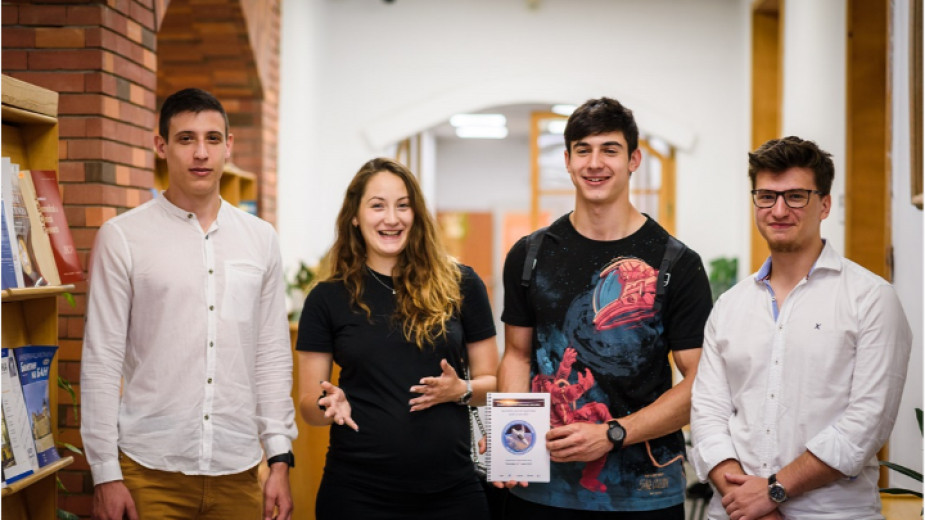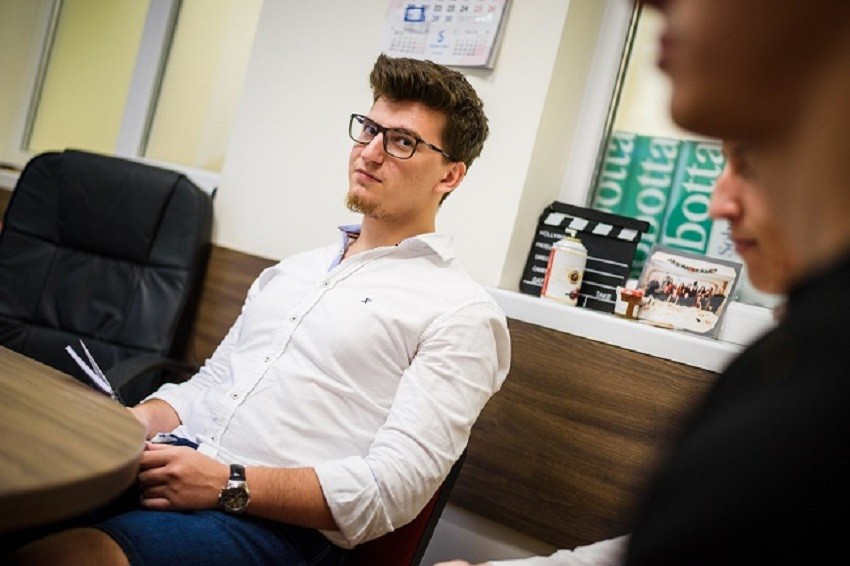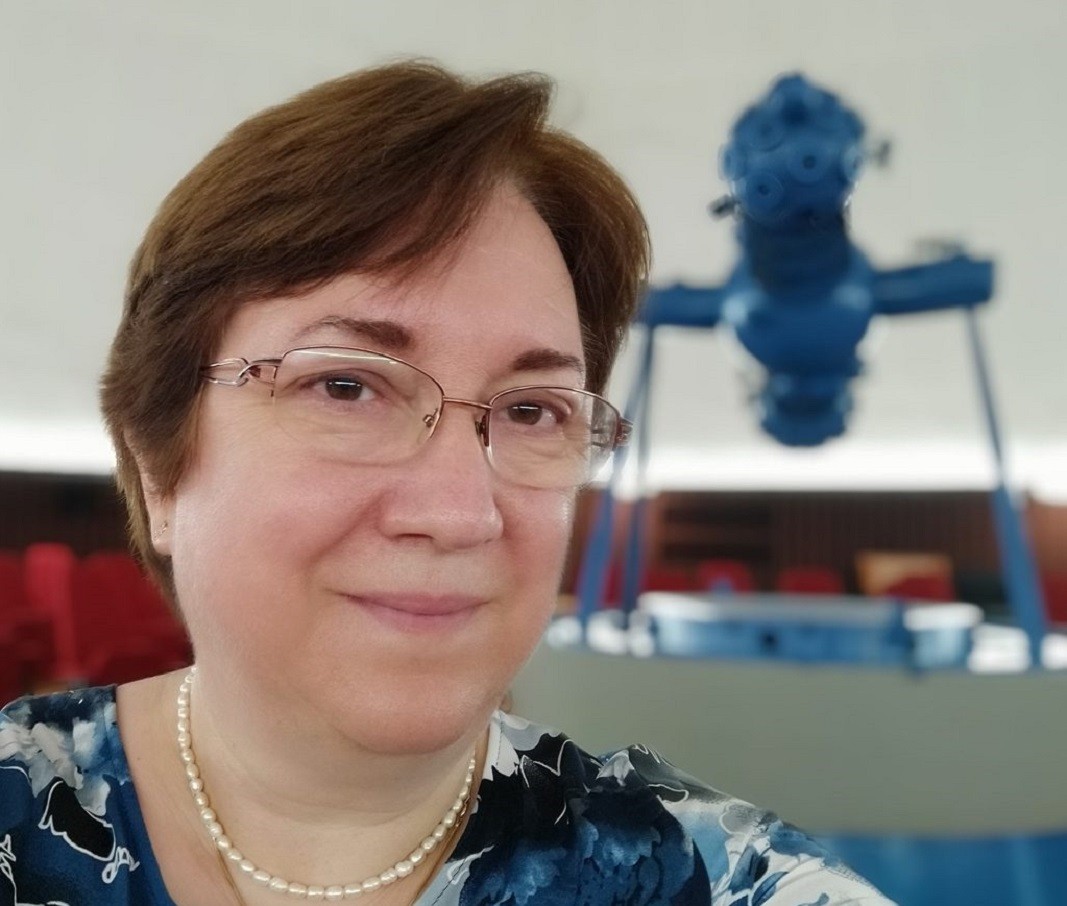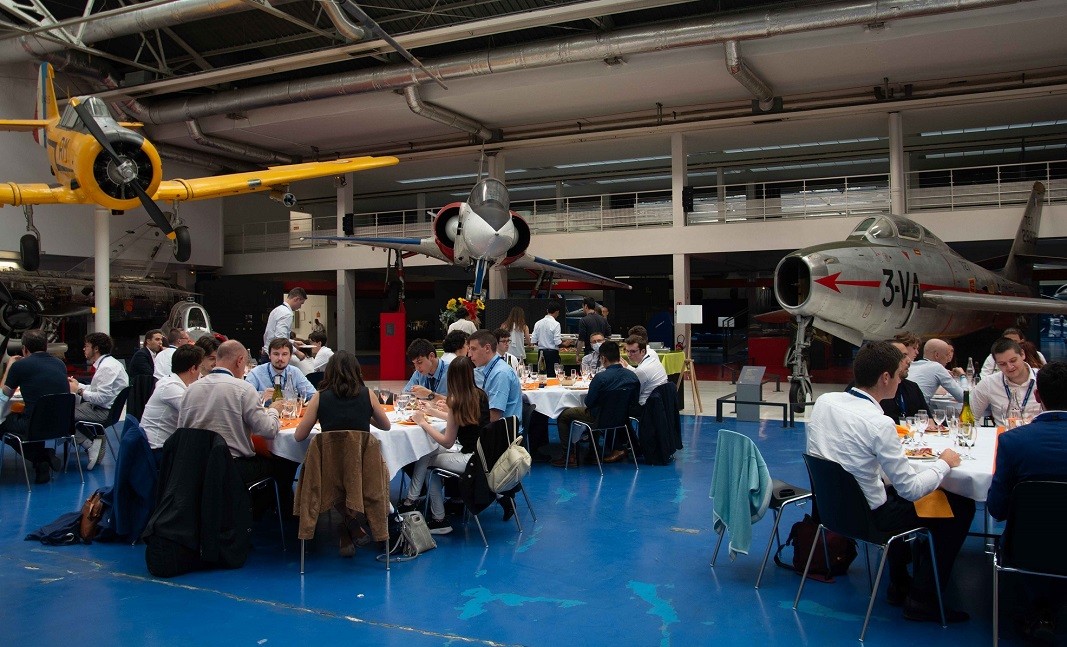 4
4
“I was told that seeing Earth from space changes the lens through which you view the world. But I was not prepared for just how much that would be true,” Amazon founder Jeff Bezos exclaimed as he looked down from the capsule that took him to the edge of space 100 kms. above the Earth.
Space tourism is still in its infancy, open solely to multimillionaires. But as technologies advance and flights grow longer, the safety of the passengers will become vital. The idea of a robot to render medical assistance to space tourists belongs to students from the Naval Academy and the Medical University in Varna, and it stands a good chance of coming to fruition in a real-life environment. Not long ago, a Bulgarian team of young inventors took part in the prestigious Student Aerospace Challenge of the European Space Agency, and were ranked among the winners, in competition with over 100 projects coming from the highest-rated universities in Europe. In this competition, the Bulgarian students had to develop a modular robotic system providing for the medical needs of the crew and passengers during spaceflight.

“We are developing an AI-based modular robot that will be able to automatically perform the most widespread medical manipulations and take the place of any medical staff on board the spacecraft,” explains Anton Atanassov, a first-year cybersecurity student at the Naval Academy. The project of the team, created in December 2021, is meant for suborbital flights lasting up to 90 minutes, and with no more than 6 passengers. The space doctor will be trained to perform different kinds of manipulations:

“CPR, intubation using a flexible tube and pump built into the module,” Anton Atanassov says. “Tourists can get patches with tiny devices, sensors monitoring things like body temperature, heartbeat, blood sugar, the principal vital signs, and sending the data to AI which will assess the health status. If any manipulations are needed, then the robot will be able to administer an intravenous line and inject the necessary medication.”
The students believe that automation of medical care during flights can save human lives. All the more so that this has been tested internationally, with even an 80-year-old taking part in the tests. Assoc. Prof. Veselka Radeva, head of the Naval Astronomical Observatory and Planetarium of the Naval Academy, and of the student club supports the quests of the young inventors in space medicine connected with the monitoring of the health of tourists and the crews of spaceships:

“Our success was huge, because, traditionally, it is MSc and PhD students that take part in this competition,” she says. “Whereas our students were in their first, second, third and fourth year, but they were well trained, they were motivated and very knowledgeable. Only 10 out of the 100 projects submitted were presented to the biggest space agencies in Europe and air transport companies at the final conference. The Bulgarian space medicine project earned the approval of the jury, and there were even comments that it contains ideas for five more projects.”
According to Assoc. Prof. Radeva, space tourism is for people aged 10 to 80. And as their bodily reaction to zero-g will be different, what they will need, besides a trained crew of pilots, will be a high standard of medical care. “The robot these young people developed is going to do an excellent job of administering medical assistance, and even CPR,” she says.
Meanwhile, Anton Atanassov is not putting any constraints on his dreams: “If I have such an opportunity, I would like to go to a star system with six planets in the habitable zone. It would be interesting to see if there is life on them, because each planet would be very different with its own life forms.”

Interview by Daniela Stoynova, BNR-Varna
Editing by Diana Tsankova
Photos: mu-varna.bg, naval-acad.bgThe Bulgarian Sunday School "Asen and Ilia Peykovi" in Rome is inviting participants to an online seminar themed "Biserche Valshebno". The event, taking place on March 22 and 23, is a continuation of the discussions that emerged during the Second..
"It all started on a March evening in 2007 when 2 million people and 2,000 companies in Sydney (Australia) turned off their lights for one hour – from 8:30 PM to 9:30 PM – to show that they care about nature and the climate. Back then, no one could..
Concert in North Macedonia turns into tragedy A nightclub fire tragedy left North Macedonia in grief. A concert by the popular hip-hop group DNA, which was supposed to become a celebration in the small town of Kočani, turned into a true..
"It all started on a March evening in 2007 when 2 million people and 2,000 companies in Sydney (Australia) turned off their lights for one hour – from..
The Bulgarian Sunday School "Asen and Ilia Peykovi" in Rome is inviting participants to an online seminar themed "Biserche Valshebno". The event, taking..
Bulgaria participates in the Global Money Week initiative for yet another year. Global Money Week is an annual global awareness-raising campaign to..

+359 2 9336 661
